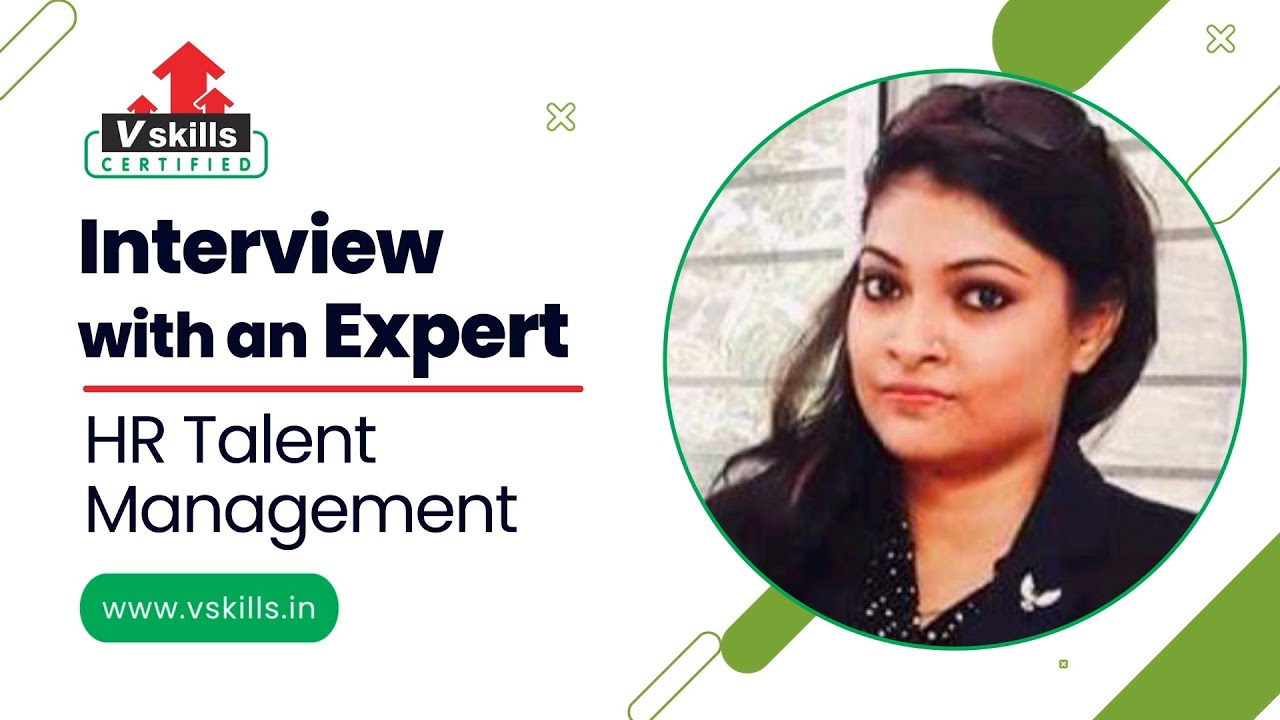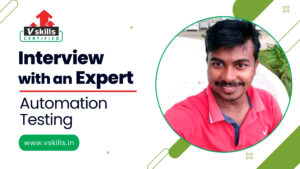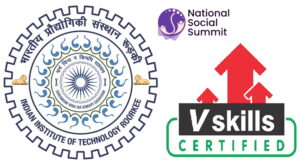Any business is critically dependent on the quality of its people, due to which a talent manager’s role becomes increasingly important. Knowledge in talent management involves analyzing a company’s Human Resources needs and understanding different aspects of Human Resource Management which includes basic knowledge of HRM, recruitment of the right resources, training and development and career progression. We shall also learn more about what is talent management, why it’s considered a critical aspect of the human resources department, and understand the ways in which talent management systems enable organizations in building and nurture employees, as well as keep them engaged, and skilled for increased productivity
Important Role and Responsibilities of a Talent Manager
The important roles and responsibilities of professionals working in the field of Talent Management are –
- Plan and organize a company’s staff to make the most of its workers’ abilities.
- Link a company’s management with its staff.
- Employee benefits packages should be planned and overseen.
- Assist other administrators as human resources consultants, advising them on topics such as equal employment opportunities and sexual harassment.
- Coordination and supervision of experts and support personnel’s jobs
- Oversee the recruiting, interview, selection, and hiring processes for a company.
- Handle problems with staffing, such as managing disagreements and directing disciplinary procedures.
To understand more, let us now hear from our subject matter expert Ms Debalina Roy who has over 14 years of professional corporate experience as a human resources practitioner, currently working as a senior talent manager at a financial services firm. She has worked with companies like HDFC Bank, Reliance communications, Star Cement Ltd and Vikram Solar Ltd. She has completed many professional certifications, MDPs and EDPs from Aon HR Learning centre, XLRI, SHRM etc. She is also a certified behavioural assessor of Thomas Profile PPA, 16PF, and SHL OPQ32 personality test.
Q1. As a business leader, we must get the best out of our staff. We want them to stay motivated and perform the tasks willingly and efficiently. To achieve this, a good management style is necessary. What is your management style and how do you use it to drive positive results?
Answer: One thing I have learnt over the years is that there is NO one-size-fits-all management style. Management style is about motivating and managing people to get the tasks at hand done and I somehow believe situational leadership style is the best management style. In this style, you need to focus on tasks and people. Thereby, based on the situation you need to adapt yourself. Sometimes you need to be more participating, sometimes more delegating, and sometimes you need to be authoritative. So you need to adapt yourself based on tasks, situations and the people involved.
Q2. Is it possible to have multiple management styles in one organisation? If yes, how?
Answer: Yes, it is possible. For example, management trainees are freshers, they require a Directive management style. But when we work with equally experienced functional leaders in the same organisation, then we need to exercise a Participative management style. Now, when we are dealing with senior team leaders, we usually need to give them more power in the situation. There is no hard and fast rule for this. Management style is a fluid concept which completely depends on the situation and the task at hand.
Q3. During the pandemic in 2020, how did you adapt to the changes the pandemic brought with it?
Answer: The pandemic was a black swan event but a blessing in disguise. It has accelerated digitisation in organisations. For example, before the pandemic, working from home was a myth but during the pandemic, for several months, work was remote and later it became a hybrid. With time, we have thrown old strategies out the window. We have formulated a new business continuation plan for organisations. Now, working from home isn’t just a luxury but has become a necessity for organisations.
Also, before the pandemic, people did not know how to use platforms like zoom, google meet etc but now people do not just know how to operate these platforms but are also aware of the online meeting etiquette. We adapted to the situation and emerged more equipped, skilled, agile and resilient.
Q4. Do you think skill-based hiring has accelerated its presence after the pandemic? Is it more important than the candidate’s credentials?
Answer: Skill-based hiring is nothing but hiring for specific skills and competencies required for the job. It was present even before the pandemic hit. We always focused on the JD which mentions the skillsets and competencies required to do the job effectively. However, now the demand for skill-based hiring has increased because the jobs available in the market now are highly specialised and required special skills rather than qualifications. However, there are still many entry-level jobs including internships where relevant qualifications are a minimum requirement to bag the stint.
Q5. Does this give rise to the gig economy? what are the pros and cons of the gig economy?
Answer: The gig economy is all about people having some subject matter expertise, skillset and experience but looking to work in a flexible manner instead of a traditional full time 9-5 job. They join on a project basis and the payment is based on output or as decided by both parties. In this fourth industrial revolution, especially millennials, they are choosing to be gig workers. They want to have the flexibility to work anywhere and anytime. The workplace has become boundaryless and timeless. The gig workers can work on multiple projects at the same time while in the case of a full-time traditional job, you are not allowed to work anywhere else even on a part-time basis.
The merits are for both workers and organisation, the workers get the work flexibility while employers save costs. The demerits of the gig economy are the workers are never integrated into the organisation’s culture. There will always remain a lack of discipline and routine, and the workers don’t get any worker benefits. Even for the organisation, there become many different sets and types of employees which makes the entire process complex to cater to needs, so organisations are being careful before hiring them at present.
Q6. Why did the Great Resignation happen? What are its ramifications?
Answer: There are much literature, research and analysis on why this happened. In my opinion, the pandemic has taught people that personal life is a priority, maybe people really introspected and analysed what they want from life and hence employees are not ready to revolve their life around just work. People have left their secure jobs to follow their passion, or become an entrepreneur. People need work-life balance more than anything now. Even the definition of success has changed too. All these reasons must have contributed to what we call the Great Resignation.
Q7. With things coming back to normal, do you think the hybrid work model has been completely integrated into organisations now?
Answer: Many factors come into play for this to happen namely, technological support, and people’s mindsets. It also depends on the organisation. However, in surveys published by Gartner, Aon etc, we can see that almost 70% of organisations have already successfully implemented a hybrid model. Some organisations have also gone on to implement permanent work from home since this has many advantages like saving office resources and this has worked positively in these organisations. Hence, there is enough evidence that the hybrid work model is here to stay.
Q9. What is internal mobility and is it a key part of building a successful talent strategy?
Answer: Internal mobility is the movement of talent within an organisation both laterally and vertically. This is an advantageous strategy to exercise. Instead of hiring from outside, we can find talent inside our organisation. Many top companies like HUL, and Colgate-Palmolive are already implementing this and have been successful as well. This reduces costs to the company, the employee doesn’t need to adapt to the culture of the organisation since they have already been working there, boosts employee engagement and the employee gets a chance to work on domains of their interest and hence supports the business.
Q10. How do you manage to stay updated with the trends and technological tools available?
Answer: If you go through World Economic Forum reports, you will find that the ability to continuously learn, the learning agility, is an important skill for the present as well as the future. One way to achieve this is by continuous reading, there is no substitution for it. Read journals, research papers, World Economic Forum reports, and research reports by companies like Gartner, McKinsey and Deloitte. These are the world’s leading players in their domain. Read different books and watch educative movies. There are also specialised courses like MDPs EDPs etc. There are MOOC platforms like Udemy, Coursera, LinkedIn learning etc.
There is no end to learning. More than resources, you just need the curiosity, open mind and agility to learn and you will sail through for sure.
Q11. What are the most important skills for someone to become a talent manager for a fresher?
Answer: Few of the important skills are:
- Flexibility
- Good communication skills
- Curiosity to learn more
- Analytical and problem-solving ability
- Be a good listener
- Empathy
- Ability to collaborate with others
- Ability to inspire, motivate and help others
These skills can also be extended to other professions and are not just limited to talent management.
Q12. Advice for people looking to make a career in the field of HR and its career progression.
Answer: There are many areas one can work in under Human Resources. To name a few, talent acquisition, talent management, learning and development, HR Analytics, HR operations, employee engagement, compensation and benefits etc. In general, there are two kinds of roles, HRBP and COE roles. HRBP roles include doing everything that comes under the HR wing like the ones I mentioned above for a particular business you have partnered with. Then comes the COE role where you are the Corporate Subject matter expert of a particular HR Function. So, based on your interest, experience, and aspirations, you can choose anyone and make a career out of it. Be consistent with your role and keep yourself updated.
I started from talent acquisition and I personally believe one should start from the same since you get to understand the organisation, and the people required well and then gradually you can get into other roles.




